The gun lobby has a new leader in D.C. — and it's not following the NRA's playbook
WASHINGTON — The top advocate for the gun industry in Washington is spending more than ever to influence the federal government. The group accuses President Joe Biden of waging war on the Second Amendment. It resists any effort to create universal background checks and argues that attempts to crack down on untraceable “ghost guns” are unnecessary.
And it’s not the National Rifle Association.
The NSSF, founded more than 60 years ago to promote hunting and recreational shooting, has grown into the country’s largest firearms trade association. The organization spent more than $5.4 million on federal lobbying last year, more than in any other year in its history and more than twice as much as the NRA, according to federal records.
The NRA — long seen as synonymous with the gun-rights movement — has struggled with declining membership and revenue, as well as internal scandals. The latest blow came when its longtime leader, Wayne LaPierre, was found liable for corruption in a New York court last month.
As the NRA cuts back on federal lobbying, its troubles have created an opportunity for other gun-rights advocates to expand — especially the NSSF.
The NSSF resists comparisons to the NRA, stressing that its trade association is just that — a group that represents gun manufacturers, retailers and other business interests, not gun owners themselves, as the NRA does.
Formerly known as the National Shooting Sports Foundation, the NSSF tends to strike a less confrontational tone than its better-known counterpart, underscoring its regulatory focus and partnerships with the federal agencies it criticizes, in contrast to the NRA’s no-compromise strategy.
But the two groups share many core positions, opposing universal background checks, “red flag” laws passed in more than 20 states and efforts to mandate safe storage of firearms. And even the NSSF’s critics see it as well positioned to influence gun policy.
“Being lesser-known is a huge tactical advantage,” said Kris Brown, the president of Brady, a gun-violence prevention group. “People don’t know them and aren’t coming after them.”
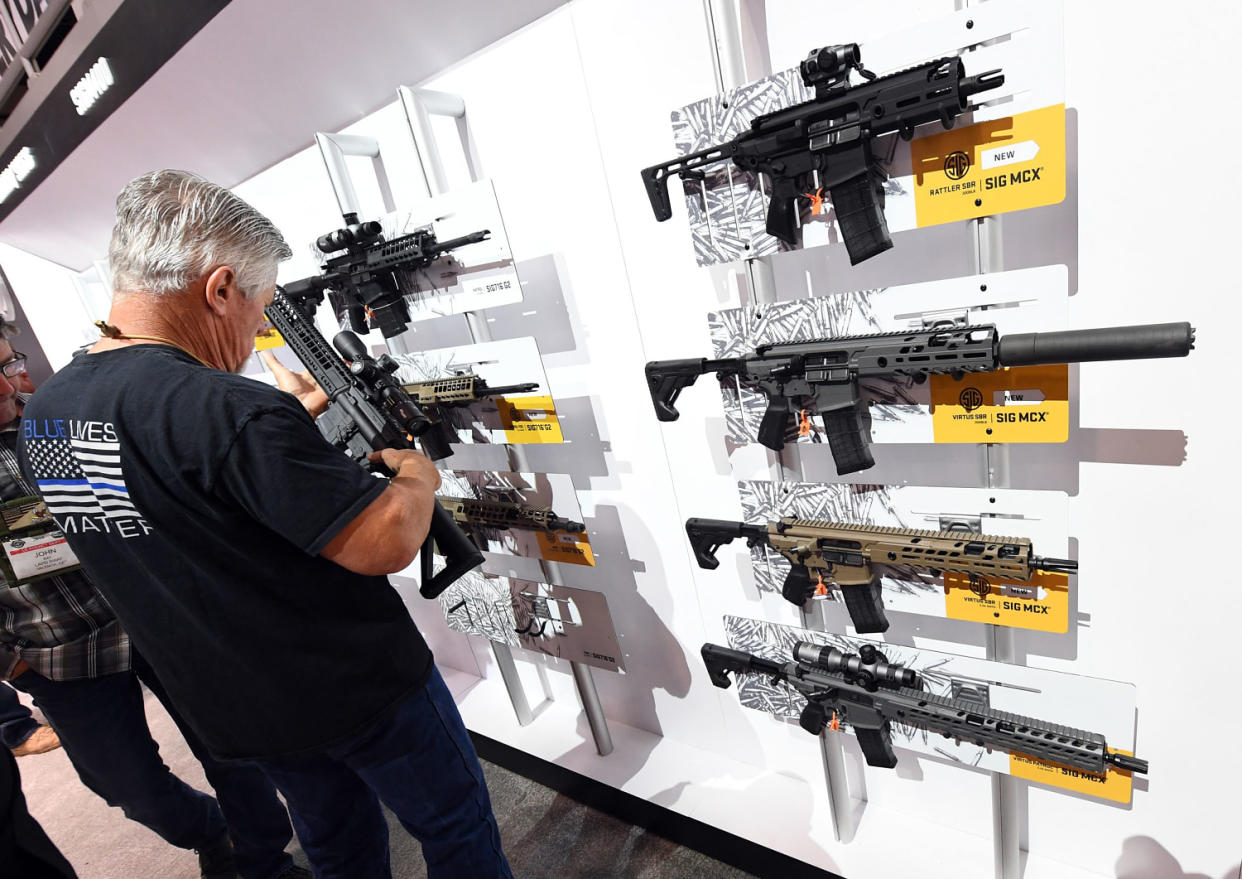
Unlike trade groups representing other industries, the NSSF isn’t just advocating for businesses; it is also protecting “the exercise of a constitutional right,” said Larry Keane, the NSSF’s general counsel and chief lobbyist.
“The product is firearms, and there’s no divorcing the politics from the product,” Keane said in a recent interview.
The group works to maintain its bona fides as a staunch defender of the Second Amendment while also presenting itself as a pragmatic player similar to business groups representing less controversial industries.
Geneva Solomon, a gun store owner in California who has worked with the NSSF to promote firearms safety, sees the trade group as more open to dialogue than the NRA, which she believes is important to shift public perception of guns.
“The NRA’s messaging was like if you’re anti-gun, we’re not going to talk to you,” said Solomon, who is a member of both groups. “We really want to change the narrative when it comes to firearms.”
Advocates for stronger gun control measures counter that the trade association is simply masquerading as a more reasonable gun-rights group than the NRA while holding equally hard-line positions.
“They’re trying to put lipstick on a pig, seeming like they’re an organization that’s focused on gun safety,” Brown said. “But they’re spending huge amounts of money to try and overturn the most basic, fundamental gun safety laws in the country.”
The NSSF denies that it’s trying to supplant the NRA and says its commitment to safety is genuine, pointing to its advocacy to fix the federal background check system, among other efforts.
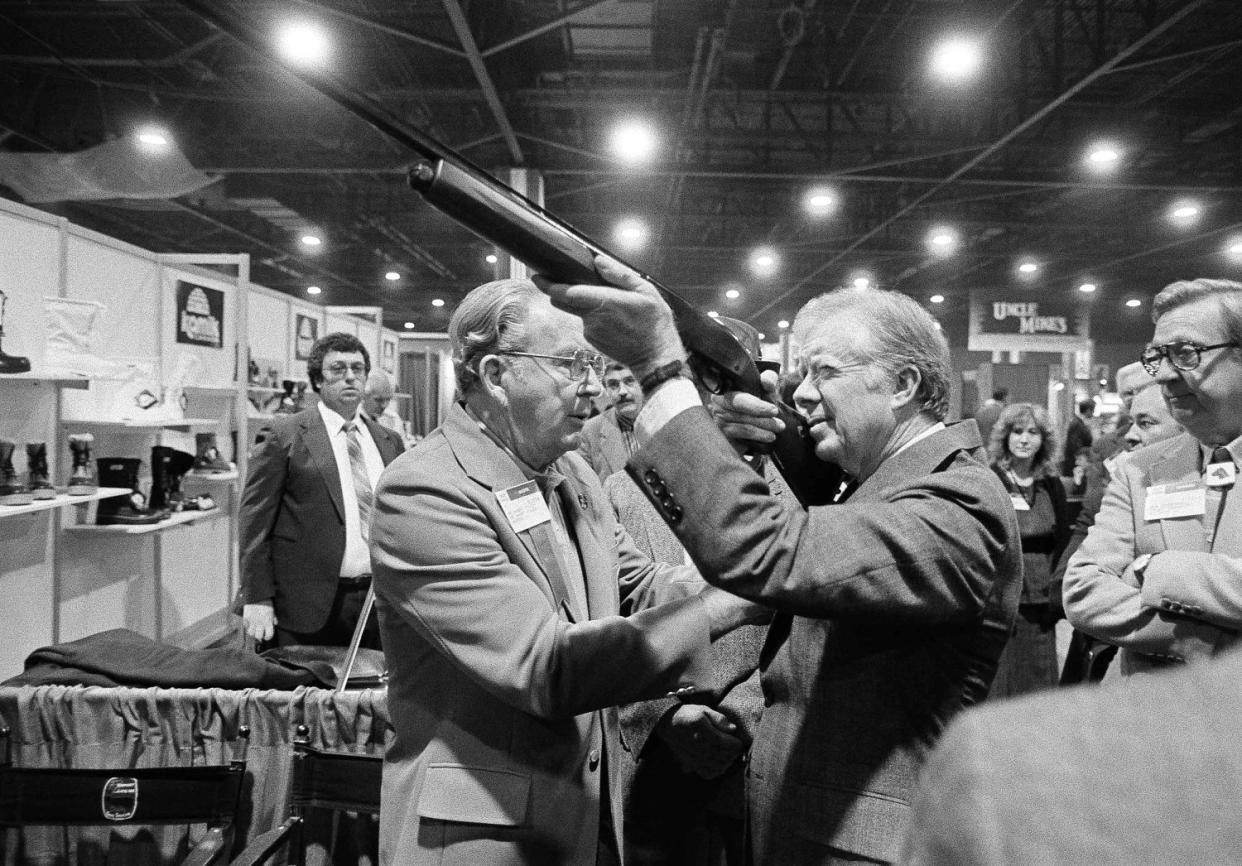
“I think they’re threatened by the NSSF,” Keane of gun control advocates. “Because we are not so easily caricatured.” The NSSF was founded in 1961 amid the rise of the anti-hunting movement and soon came to represent the country’s major manufacturers of arms and ammunition. After cities tried to sue gun manufacturers in the 1990s for helping to fuel violence, the group launched a legal defense fund and a lobbying operation, led by Keane.
In 2013, federal lawmakers began considering sweeping gun control changes after the shooting massacre in Newtown, Connecticut — the town where the NSSF had its headquarters until recently. The legislative effort fueled a surge in lobbying by gun groups of all kinds, including the NSSF.
The NRA was at the forefront of the opposition that ultimately scuttled a major bipartisan proposal for universal background checks; the NSSF also opposed the bill but largely remained behind the scenes during the debate.
By 2019, the NRA began making significant cuts to federal lobbying as it became wracked by internal turmoil. Meanwhile, the NSSF has grown to more than 10,000 members amid booming gun sales, helping the group expand its effort to influence lawmakers — which has taken on new urgency under Biden.
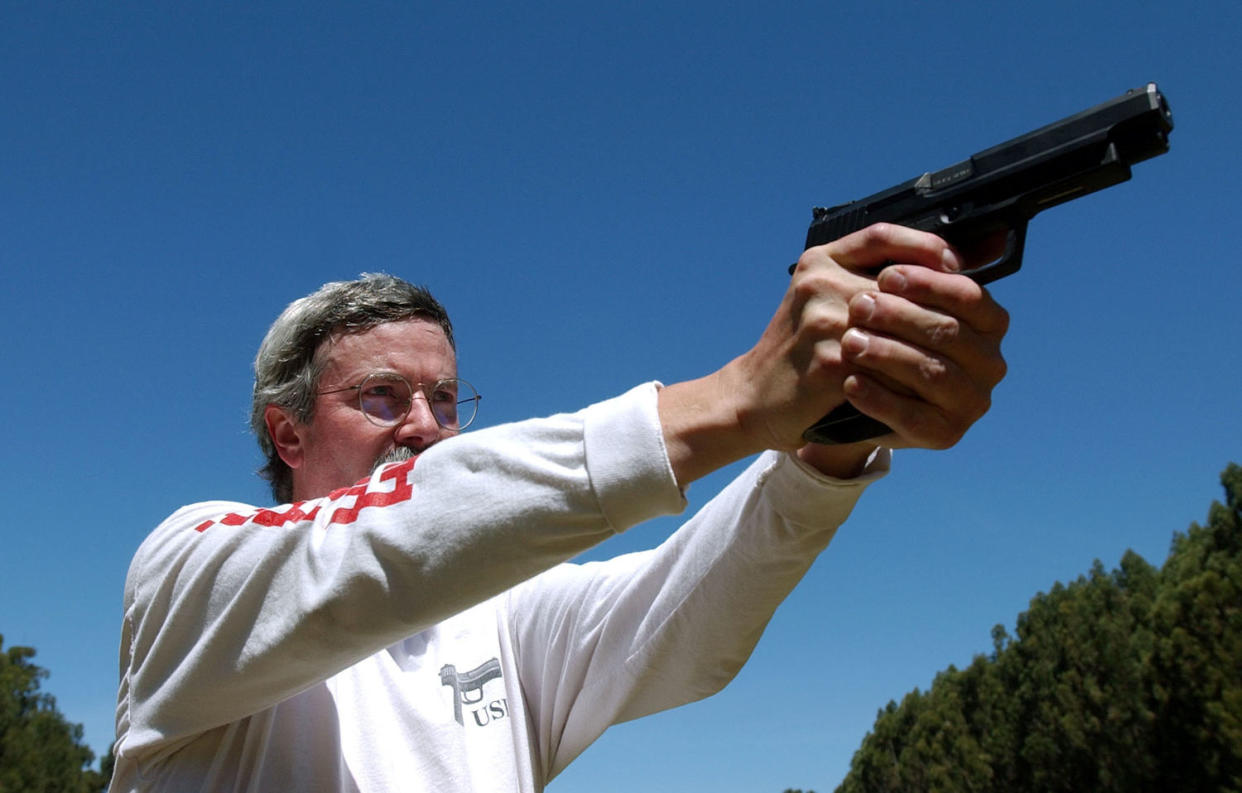
Last year, the Biden administration created the first federal office for gun violence prevention, which now coordinates executive action on gun safety. The White House also pushed to revoke more licenses from gun dealers who violate the law, expand background checks and tighten gun exports.
The NSSF has lambasted such efforts as a “whole-of-government attack on our industry and on the Second Amendment,” as Keane put it, and it frequently refers to Biden’s line from a 2019 Democratic primary debate: “Our enemy is the gun manufacturers, not the NRA.”
Asked for comment, the Biden administration reiterated its criticism of the industry and pointed to the high toll of gun violence in America. “Gun manufacturers and their representatives turn a blind eye to this carnage, standing in the way of even the most commonsense gun safety provisions,” Jeremy Edwards, a White House spokesman, said in a statement.
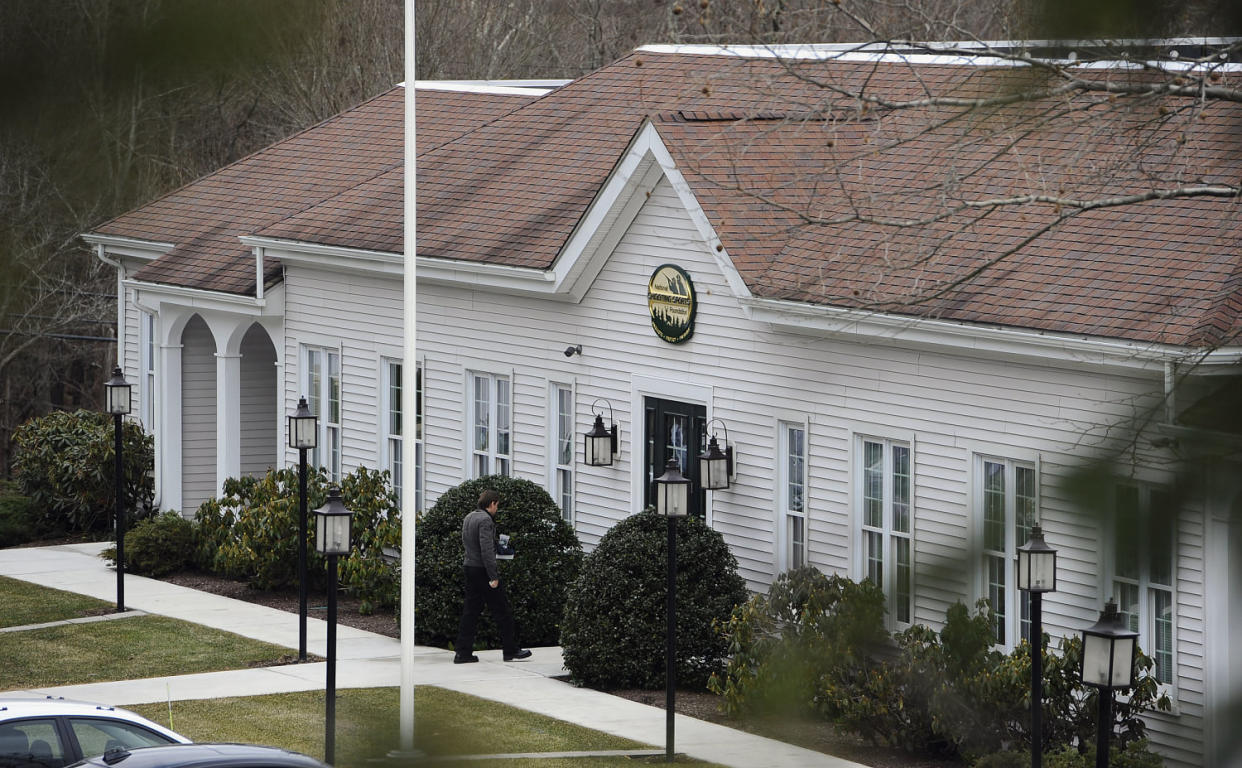
As the NSSF focuses on federal agencies, it often ties niche policy issues to long-standing concerns of the gun-rights movement.
Among its current priorities is stopping credit card companies from creating a new merchant code to flag firearms purchases, which some firms began to implement after criticism that financial institutions were enabling mass shootings.
The NSSF claims such practices would violate the privacy of gun buyers and could be abused by the government for political purposes. In a recent statement, the group evoked the frequent warning from gun-rights advocates that officials want to create a national registry of gun owners as a step toward eliminating legal gun ownership.
“It’s an increasingly political agenda,” Robert J. Spitzer, a professor emeritus at SUNY Cortland and an expert on gun politics, said of the NSSF’s work. “They have discovered that more expressly political appeals help gun sales.”
The NSSF denies that it’s using political arguments to help its bottom line, stressing its willingness to sit down with anyone, no matter the person’s ideology. “We deal with facts, and we deal with them in a professional manner,” said Mark Oliva, a spokesman for the group.
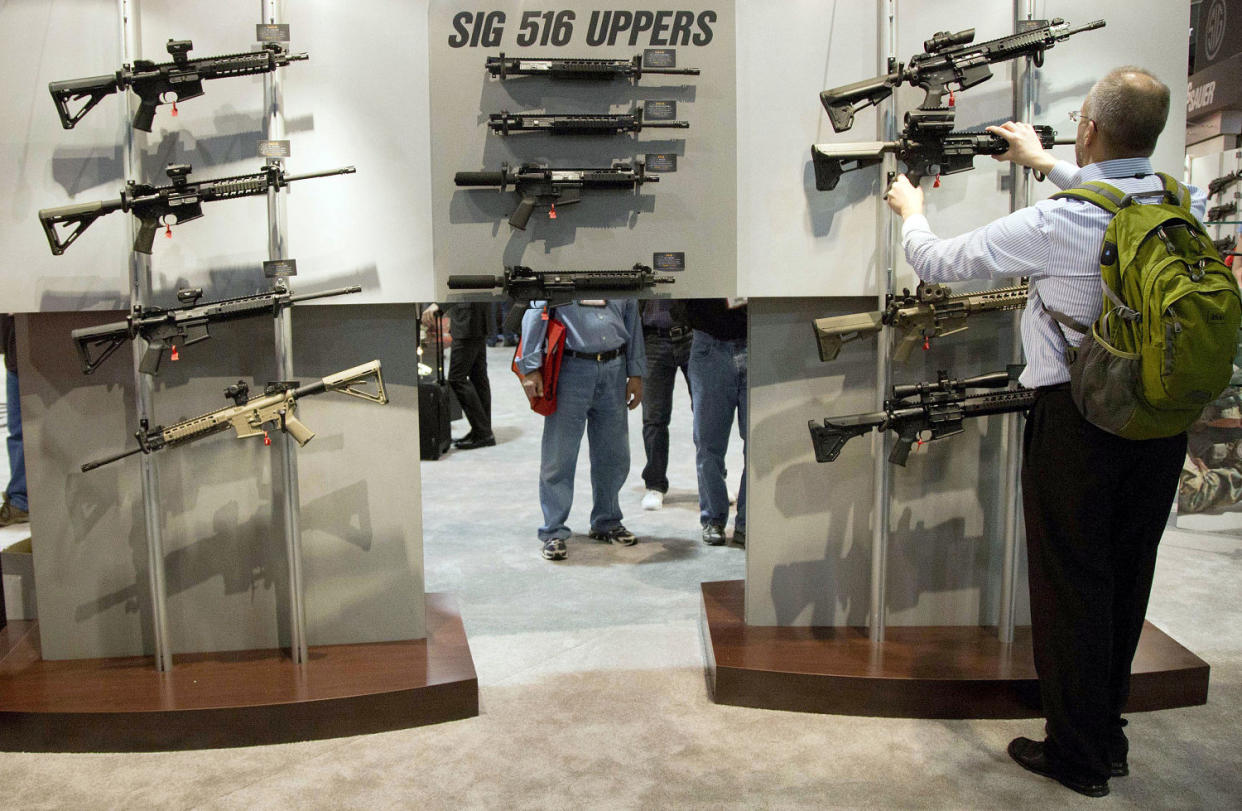
The NSSF has at times been more open to compromise than other gun-rights groups that have grown increasingly hard-line.
In June 2022, Congress passed the most significant firearms safety bill in 25 years, which enhanced background checks for gun buyers under 21 and strengthened penalties against traffickers and straw purchasers, who may buy guns on behalf of people who are prohibited from doing so.
The NSSF was a critical sounding board for the Republicans involved in crafting the bill. “Our input was sought, and we were happy to provide our perspective to policymakers on the Hill,” Keane said.
The bill ultimately passed with 15 Senate Republican and 14 House Republican votes.
The NSSF didn’t publicly support the final legislation, and it criticized some of its key provisions, including funds for state red flag laws. But it remained pointedly neutral on the overall bill, pointing out its support for new mental health funding and commending the “good faith effort” to “meaningfully address criminal violence.”
While Republican negotiators also consulted with the NRA, the group blasted the final bill as “gun control legislation.” Sen. John Cornyn, R-Texas, who co-sponsored the legislation, said he understood where the NRA was coming from but criticized the group as reflexively obstructive. “We worked with the NRA, listened to their concerns, but in the end I think they simply — they have a membership and a business model that will not allow them to support any legislation,” he said at the time.
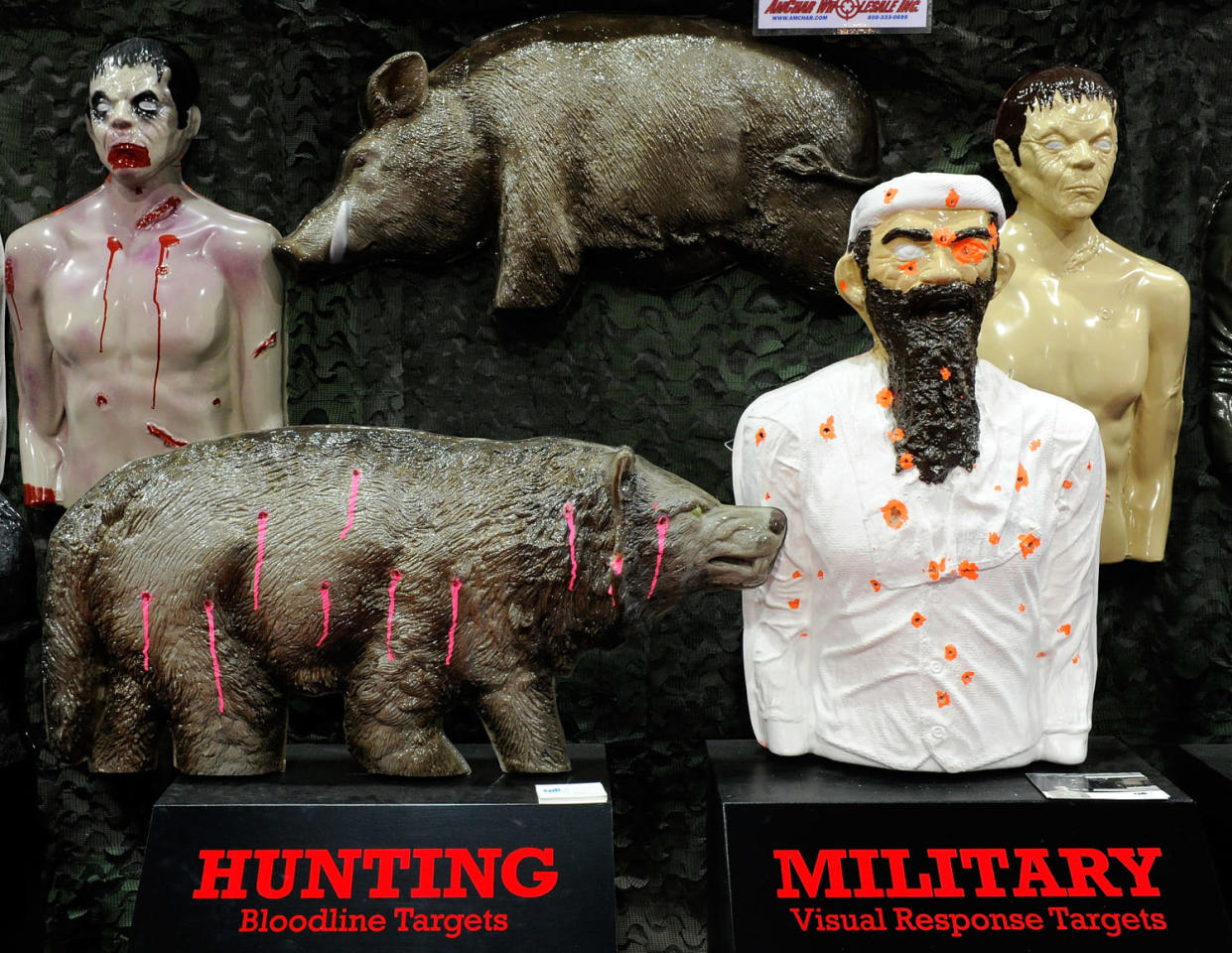
The NRA defends its rejection of the 2022 bill and its approach to gun rights.
“Even the slightest concession risks dismantling our fundamental freedoms,” said NRA spokesman Billy McLaughlin, who denied that the group’s influence is waning.
Even diminished, the NRA still dwarfs the NSSF in terms of overall revenue and membership, and it remains a heavyweight in electoral politics, having recently hosted former President Donald Trump.
“The NRA’s influence has never stemmed from the salaries or expenditures,” McLaughlin said in a statement. “It comes from the millions of NRA members and supporters across the country who stand and fight, take action, and vote.”
But as the face of the industry, the NSSF has its own connections to officials who make and enforce gun policies. The group’s annual SHOT Show in Las Vegas — a massive trade event in January — featured a host of Republican governors and state attorneys general as well as Steve Dettelbach, the director of the federal Bureau of Alcohol, Tobacco, Firearms and Explosives, whom Biden nominated in 2022 after his first choice faced Senate resistance and a massive backlash from gun-rights groups, including the NSSF.
“It was certainly our intent to be influential,” said Keane, referring to the opposition to Biden’s first nominee. “That’s the point of advocating on behalf of your organization.”
